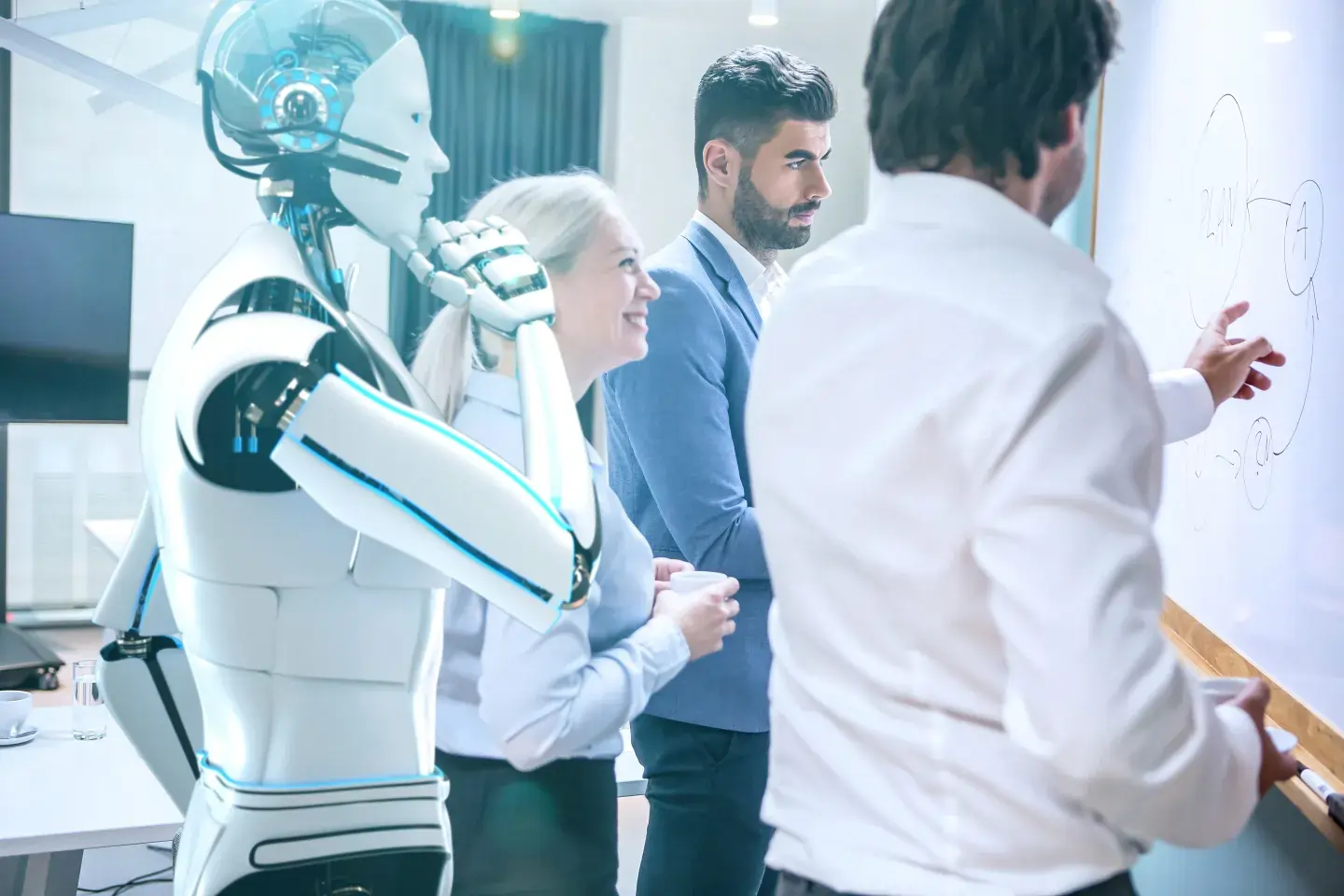AI Task Management: The Future of Organized and Efficient Work

Task management has always been one of the most challenging parts of professional life. From juggling personal to-do lists to coordinating across large teams, the simple question of “who needs to do what, by when, and why” can become a daily struggle. Traditional task management tools like spreadsheets, sticky notes, or even digital platforms often fall short because they still rely heavily on manual oversight.
Now, artificial intelligence is revolutionizing this process. AI task management takes the burden of tracking, prioritizing, and coordinating off human shoulders, making workflows smarter, faster, and far more reliable. Instead of tools that only store information, AI-driven systems act as intelligent partners that actively manage tasks in real time.
What Is AI Task Management?
AI task management uses artificial intelligence to handle the creation, prioritization, execution, and monitoring of tasks. Unlike conventional task management software, which requires users to input, track, and constantly update progress, AI-based systems can:
- Interpret instructions and convert them into actionable tasks
- Analyze priorities and deadlines to optimize scheduling
- Distribute tasks to the right people automatically
- Monitor completion rates and reassign if delays occur
- Provide reminders and insights based on real-time activity
In short, AI task management ensures nothing falls through the cracks.
Why Traditional Task Management Falls Short
AI task management uses artificial intelligence to handle the creation, prioritization, execution, and monitoring of tasks. Unlike conventional task management software, which requires users to input, track, and constantly update progress, AI-based systems can:
- Interpret instructions and convert them into actionable tasks
- Analyze priorities and deadlines to optimize scheduling
- Distribute tasks to the right people automatically
- Monitor completion rates and reassign if delays occur
- Provide reminders and insights based on real-time activity
In short, AI task management ensures nothing falls through the cracks.
What Are the Key Benefits of AI Task Management?
Organizations adopting AI-powered task systems are reporting transformative results. The benefits include:
a) Smarter Prioritization
AI determines which tasks are most critical, based on deadlines, dependencies, and business goals.
b)Reduced Administrative Burden
Teams no longer waste time updating spreadsheets or chasing status updates.
c) Improved Collaboration
Tasks flow seamlessly between individuals, departments, and tools without gaps.
d) Fewer Errors
Automated oversight ensures tasks are completed accurately and on time.
e) Scalability
As projects grow in size and complexity, AI scales effortlessly, coordinating work across large teams.
How AI Task Management Works: A Step-by-Step Example
To understand how AI transforms task management, consider this scenario:
- Input an Objective
A manager tells the AI system, “Prepare a client presentation for next Friday.”
2. Break It Into Tasks
The AI generates subtasks: gather sales data, design slides, draft talking points, review with the client team, finalize the deck.
3. Assign Responsibilities
It automatically assigns each task to the right team member based on expertise and workload.
4. Set Timelines
The AI creates deadlines for each step to ensure the final presentation is ready by Friday.
5. Track Progress
As tasks are completed in connected tools (e.g., Google Drive, Microsoft Teams, CRM platforms), the AI updates status automatically.
6. Resolve Delays
If a task is late, the AI reassigns it or escalates it to ensure deadlines are met.
This process turns what was once a series of manual follow-ups into a self-managed system.
Common Use Cases of AI Task Management
AI task management is not just about checklists. It supports a variety of workflows across industries:
- Marketing Teams: AI coordinates campaign tasks, monitors deadlines, and adapts schedules when content is delayed.
- Sales Teams: Tasks like updating CRM entries, following up with leads, and scheduling demos are automated.
- Operations: AI manages recurring tasks such as vendor follow-ups, inventory tracking, and compliance checks.
- Product Development: Complex task dependencies in agile sprints are handled automatically, reducing bottlenecks.
- HR: Onboarding checklists, training schedules, and engagement surveys are automated for new hires.
How Does AI Task Management Differ From Project Management?
It is easy to confuse task management with project management, but the two are distinct.
- Project Management focuses on overall goals, milestones, and deliverables.
- Task Management is about ensuring every individual action that contributes to those goals is completed on time.
AI task management provides the granularity needed to make projects successful. Without effective task oversight, even the most well-planned project can collapse.
Burai’s Approach to AI Task Management
Many platforms offer task automation, but Burai stands out by embedding AI workflow agents directly into task systems. Burai does not just log tasks; it actively manages them as intelligent teammates.
How Burai Handles Tasks
- Contextual Task Creation: Burai listens to conversations, emails, and chats, then automatically generates tasks from them.
- Workflow Mapping: The system understands how teams actually work and maps tasks to real-world habits.
- Cross-Platform Execution: Whether in Microsoft, Google, or enterprise apps, Burai ensures tasks are tracked and completed across environments.
- Adaptive Prioritization: Burai’s agents continuously re-evaluate deadlines and resources to keep work on track.
- Governed Oversight: Every action is logged, monitored, and reviewed to maintain compliance and trust.
With Burai, tasks move from being items on a list to fully managed, intelligent workflows.
Comparing Burai to Other AI Task Tools
Not all AI task management platforms are equal. Here is how Burai compares:
Burai’s agent-driven model ensures that tasks are not just tracked but executed intelligently.
How to Introduce AI Task Management in Your Organization
Bringing AI task management into your workplace is simpler than it seems.
Step 1: Audit Your Current System
Identify where tasks are slipping through cracks or where manual oversight is wasting time.
Step 2: Select an AI-Driven Platform
Choose a system that integrates with your existing tools. Burai, for example, works seamlessly across Microsoft, Google, and CRMs.
Step 3: Start With High-Impact Areas
Implement AI in areas where repetitive tasks slow teams down, such as client follow-ups or campaign tracking.
Step 4: Train Teams on Oversight
AI manages the work, but humans should remain responsible for guiding strategy and confirming outcomes.
Step 5: Scale Across Departments
Expand adoption once initial success is proven, eventually embedding AI into organization-wide task management.
The Future of AI Task Management
Looking ahead, AI task management will become the norm rather than the exception. Future advancements will bring:
- Proactive Recommendations: AI will suggest new tasks based on patterns and goals.
- Voice-Driven Task Creation: Teams will add and track tasks through natural conversation.
- Deeper Personalization: AI will adapt to each employee’s working style and preferences.
- Integration With Agentic Workflows: Task management will merge seamlessly into larger workflows handled by AI agents.
The future workplace will no longer rely on manual checklists. Instead, tasks will be intelligently managed in real time.
Final Thoughts: Smarter Work With AI
AI task management represents a significant leap forward for how individuals and organizations stay organized. It eliminates the inefficiencies of manual oversight, ensures tasks are completed reliably, and empowers employees to focus on meaningful work.
With platforms like Burai, AI task management is more than a convenience. It is a competitive advantage, helping teams deliver with speed, accuracy, and confidence.
💡 Ready to see how AI task management can transform your organization? Request a demo from Burai today and take the first step toward smarter, more efficient workflows.



